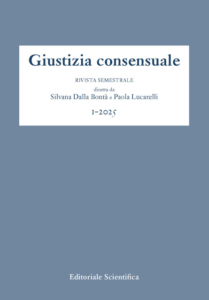Views
Clearly Inappropriate Down Under: Isaacman v King [No 2] and the Outer Limits of Long-Arm Jurisdiction
By Dr Sarah McKibbin, University of Southern Queensland
The Supreme Court of New South Wales’ decision in Isaacman v King [No 2][1] is the kind of case that tempts one to say ‘nothing to see here’, and yet it richly rewards a closer look. On a conventional application of Voth v Manildra Flour Mills[2] — the leading Australian authority on forum non conveniens — Garling J stayed proceedings that attempted to litigate a New York relationship dispute in Sydney, being ‘well satisfied’ that the NSW Supreme Court was a clearly inappropriate forum.[3] The reasons, though brief by design,[4] illuminate the transaction costs of jurisdictional overreach,[5] show how the Voth framework handles an extreme set of facts, and offer a careful case study for empirical debates about Australian ‘parochialism’ in jurisdictional decision-making. Read more
Indonesian Constitutional Court on International Child Abduction
THE INDONESIAN CONSTITUTIONAL COURT DECISION REAFFIRMED PARENTAL CHILD ABDUCTION IS A CRIMINAL OFFENCE
By: Priskila Pratita Penasthika[1]
INTRODUCTION
The Indonesian Constitutional Court Decision Number 140/PUU-XXI/2023, issued on 3 September 2024, confirms that parental child abduction is a criminal offence under Article 330(1) of the Indonesian Criminal Code. Prior to this Decision, Article 330(1) of the Criminal Code was understood as a provision that could not criminalise someone for child abduction if the abduction was committed by one of the biological parents.
After 3 September 2024, through this Constitutional Court Decision, the abduction of a child by one of the biological parents, when the parent does not have custody based on a final court decision, is reaffirmed as a criminal offence. Read more
The 2025 International Arbitration Survey: The Path Forward
“The 2025 International Arbitration Survey: The Path Forward”
Luke Nottage (University of Sydney)
The 14th Queen Mary University of London Survey, again in collaboration with international law firm White & Case, was dissected at an Australian launch seminar (expertly moderated by partner Lee Carroll) at their Melbourne office on 22 July 2025. Some “early insights” had been provided during Paris Arbitration Weeks, when the Survey report was not yet public. This analysis delves deeper into the report and key findings, drawing also on the discussion with our co-panellists, including some suggestions for future research.
News
Giustizia consensuale No 1/2025: Abstracts
 The first issue of 2025 of Giustizia consensuale (published by Editoriale Scientifica) has been released, and it features:
The first issue of 2025 of Giustizia consensuale (published by Editoriale Scientifica) has been released, and it features:
Cesare Cavallini (Professor at Bocconi University, Milan), L’arbitrato come processo e giustizia consensuale (Arbitration as a Process and Consensual Justice; in Italian).
The essay aims to analyze the phenomenon of private autonomy and consensual justice in arbitration as it has evolved through various reforms. The goal is to highlight arbitration as a process and a form of consensual justice that is alternative yet distinct from ordinary judicial proceedings and fully aligned with constitutional principles. This objective becomes even more significant when compared to the very different and controversial issues discussed in American legal doctrine, which instead point to an unceasing erosion of rights through a blending of public interferences in arbitration and private ones in ordinary justice, raising concerns about the legitimacy of private autonomy within the framework of civil protections under constitutional scrutiny. Read more
Call for abstracts on the Succession Regulation (EU) 650/2012
The private international law experts from the University Rovira i Virgili (URV-Tarragona) and the University of Lleida (UdL) together with the Notarial Association of Catalonia, are organizing I INTERNATIONAL CONFERENCE ON THE REVIEW OF REGULATION (EU) 650/2012 AFTER TEN YEARS OF APPLICATION.
– The deadline for receiving abstracts has been extended until 29 September 29 2025.
– The scientific committee will decide on the acceptance on 14 October 2025.
– The conference will take place in Barcelona, on 11 and 12 of November 2025.
The call is open for any of the main thematic areas: scope, definitions, jurisdiction, applicable law, recognition, enforceability and enforcement of decisions and documents, the European Certificate of Succession and other complementary provisions. Communications accepted will be presented in person during the seminar for approximately five or seven minutes each. Applications to present a communication proposal must meet the following requirements: identification of the author and his/her academic category, the subject to which the paper belongs, the title of the communication, an abstract of the communication, which should be between 300 and 500 words in length.
The application should be sent to: reglamentosucesiones@urv.cat
Communications will be selected according to their relevance in terms of the chosen thematic area; quality in the treatment of the topic and originality.
This Conference is part of the research project: “The review of Regulation 650/2012, in matters of succession: application assessment and proposals for amendments”, which is funded by the Spanish Ministry of Science, Innovation and Universities (reference PID2023-149454NB-I00). The duration of the project is four years (2024-2028) and this Conference is the first international scientific meeting planned among the project activities.
More information i available at the official web page.
Advance Article for Issue Three of the Uniform Law Review for 2025
An advanced article on conflict of laws for issue three of 2025 for Uniform Law Review was recently published.
Cayetana Santaolalla Montoya, “The challenges of blockchain arbitration from a private international law perspective”
This article aims to explore the emergence of blockchain arbitration and the legal challenges it poses from a private international law perspective. It examines the legal implications of this new type of arbitration and its feasibility under international regulatory frameworks (including the European Union, the USA, and the 1958 New York Convention), and it assesses leading decentralized justice platforms such as Kleros, Aragon, and Jur. The study highlights the fundamental differences between blockchain arbitration and traditional arbitration, identifying challenges such as the absence of a seat, the anonymity of parties and arbitrators, and the tension between decentralization and legal oversight. Finally, it explores future trends and proposes recommendations to adapt existing regulatory frameworks, concluding that, while blockchain arbitration will not replace classical arbitration in the short term, it could establish itself as a valuable complement to resolve disputes in the global digital economy.



